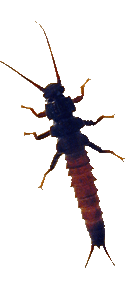|
|

The training can be tailored to specific needs including the fulfillment of a public education, outreach, involvement, and participation requirement for MS4 communities. Typical workshops are held over 3 to 5 days and with sufficient notice WAA can conduct training workshops in your region anywhere within the United States. Contact us to discuss your program needs. Workshops generally focus on introductory and comprehensive stream monitoring methods or strictly on aquatic benthic macroinvertebrate identification. Sessions include both class room instruction and hands-on fieldwork. All the necessary equipment and texts to conduct proper stream bioassessment and taxonomic work is provided for each participants use.
Additionally, WAA provides educational opportunities for undergraduate and graduate students through its Lotic Scene Investigation (LSI)™ program. An applied research program that provides:
For a list of upcoming workshops being organized and/or taught by WAA click here. WAA has organized and conducted dozens of training workshops. To veiw a list of attendees click here. Workshop materials link If you have attended a recent workshop this is the link to the materials I mentioned during the program. You will need the user name and pass word I provided you during the workshop. Top |
|
Training |

Home | Services | Watershed Assessment | Training | Taxonomy | Upcoming Workshops I Company Profile | Experience | Contact
Copyright © 2001 Watershed Assessment Associates
 Key
benefits of attending or sponsoring a training workshop:
Key
benefits of attending or sponsoring a training workshop: